Submission to Post-Market Review of PBS Medicines Used to Treat Asthma in Children
Submission 11 - Consumer Health Forum of Australia
The Consumers Health Forum of Australia (CHF) welcomes the opportunity to provide input into the Department of Health and Ageing’s Review of Pharmaceutical Benefits Scheme (PBS) Medicines Use to Treat Asthma in Children (the Review).
CHF is the national peak body representing the interests of Australian healthcare consumers. CHF works to achieve safe, quality, timely healthcare for all Australians, supported by accessible health information and systems. CHF’s comments focus on poor prescribing practices, and the health literacy of consumers, in relation to asthma medicines.
CHF notes recent research from the Australian Institute of Health and Welfare, which shows that over seventeen and half million asthma prescriptions were subsidised by the PBS between 2002 and 2004.[1] Of those, approximately 315,000 prescriptions were for children 5‑14 years of age and there is evidence to show that some classes of medicines used to treat asthma, such Long‑Acting Beta2 Agonists, are overprescribed in children and are used inappropriately as first-line therapy.[2]
Prescribing practices are also a key contributing factor to medicine misuse in asthma. A recent study of asthma management practices found that 89 percent of participating general practitioners were aware of the Australian National Asthma Guidelines (ANAG), but fewer than 40 percent were familiar with guideline recommendations.[3]
CHF would therefore welcome measures to improve adherence to the ANAG by general practitioners prescribing practices and Quality Use of Medicines for asthma medicines is to be improved.
CHF also notes the importance of the health literacy of parents and guardians in relation to medication safety for children. Medication safety for children is highly dependent on whether the parent or guardian has understood instructions on how to administer medicines. Evidence suggests that this is an ongoing problem, with the results of the Adult Literacy and Life Skills Survey showing that 59 percent of Australian adults have inadequate health literacy and experience difficulty locating information on medicines.[4] CHF would therefore encourage the initiation of consumer education and health literacy programs on asthma medicines.
CHF appreciates the opportunity to provide a submission to the Review and awaits the outcomes with interest. If you would like to discuss the issues raised in this submission in more detail, please contact CHF.
Yours sincerely,
Carol Bennett,
CHIEF EXECUTIVE OFFICER
References
[1] Australian Centre for Asthma Monitoring. (2007). Patterns of asthma medication use in Australia. Australian Institute of Health and Welfare: Canberra.
[2] Paul van Asperen, P. (2012) ‘Long-Acting Beta2 Agonists for Childhood Asthma.’ Australian Prescriber. 35(4): 111-113.
[3] Roydhouse, J. K., Shah, S., Toelle, B. G., Sawyer, S. M., Mellis, C. M., Usherwood, T. P., Edwards, P. and Jenkins, C. R. A. (2011) ‘Snapshot of General Practitioner Attitudes, Levels of Confidence and Self-Reported Paediatric Asthma Management Practice.’ Australian Journal of Primary Health. 17(3): 288-293.
[4] Australian Bureau of Statistics (2009) ‘Health Literacy Statistics.’ Accessed 25 March 2013.




